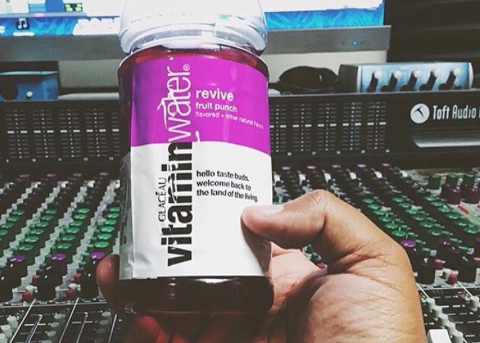It’s only human to be enticed by the eye catching labels of our favorite nutrient drinks like Vitamin Water and SoBe: “hydrating,” “zero-calorie,” “vitamin enhanced.” Labels that are quick to promote wellness give the impression that the products are light, nutritious and undoubtedly healthy. But we’ve fallen into the trap of believing these drinks are an elixir of goodness. There is, unfortunately, a not-so sweet story behind drinking nutrient waters.
1. Nutrient waters contain as much sugar as in drinks like Coke

Photo courtesy of fittothebeat.tumblr.com
Dentists, doctors, and parents alike all discourage kids from having sugary drinks. But there is something about sugar that has our taste buds hooked. Many nutrient waters are sweetened with what is called fructose.
These artificial sweeteners are equally (if not more) as harmful as normal sugars and with anything artificial it probably shouldn’t enter your body. A 500ml bottle of Vitamin Water can contain around 32 grams of sugar, which is still about 50 p[ercent of what is found in a regular Coke. This is also about one-third of a woman’s recommended daily intake of sugar.
2. Sweetened beverages don’t help with shedding fats

Photo courtesy of fitness-is-pink.com
When it comes to losing weight, we often try to minimize the amount of calories we consume. Numerous nutrient waters are “zero-calorie,” which seems great, as what we drink is as equally important as what we eat. However, any sweetened drink is no different from consuming other sugary drinks. Studies show that one of the leading factors that lead to obesity is the consumption of sugar-sweetened beverages – one’s risk may even by increased by 60 percent.
3. Nutrient waters contain vitamins we already get enough of

Photo courtesy of fitvillains.tumblr.com
Many nutrient waters predominately contain B-vitamins, and vitamin C. They are may contain smaller amounts of vitamins A and E, potassium and magnesium. Although it is a common concern to think that we are getting our essential vitamins, most people intake enough food with sufficient amounts of vitamin B and C. Consuming excess amounts do not actually provide any extra benefits but are rather washed out when going to the bathroom.
4. Labels and serving sizes are deceiving

Photo courtesy of vitaminwater.tumblr.com
A standard bottle of your average-branded nutrient water often contains more than one serving (2 to 2.5 servings). This means if a bottle is finished in one sitting, more than two times the amount of intended sugar is consumed. Always be sure to check the serving sizes located on the back of the label. If you are looking for a sweet drink without the hidden sugars, swap the Vitamin Water for coconut water. It is loaded with antioxidants and electrolytes that will leave you hydrated and refreshed.
5. These are just expensive sugar waters

Photo courtesy of @vitaminwater on Instagram
Your average brand of nutrient water is likely to cost around $3. Although the price is slightly higher than soda, we think that we are paying more for the sake of our health. At the end of the day, tap water is free. There’s no need to break the bank when water is an absolutely sugar-free, and cost-free option. Looking for some tasty water inspo? Check out these eight ways to make plain water taste sweeter this summer.


